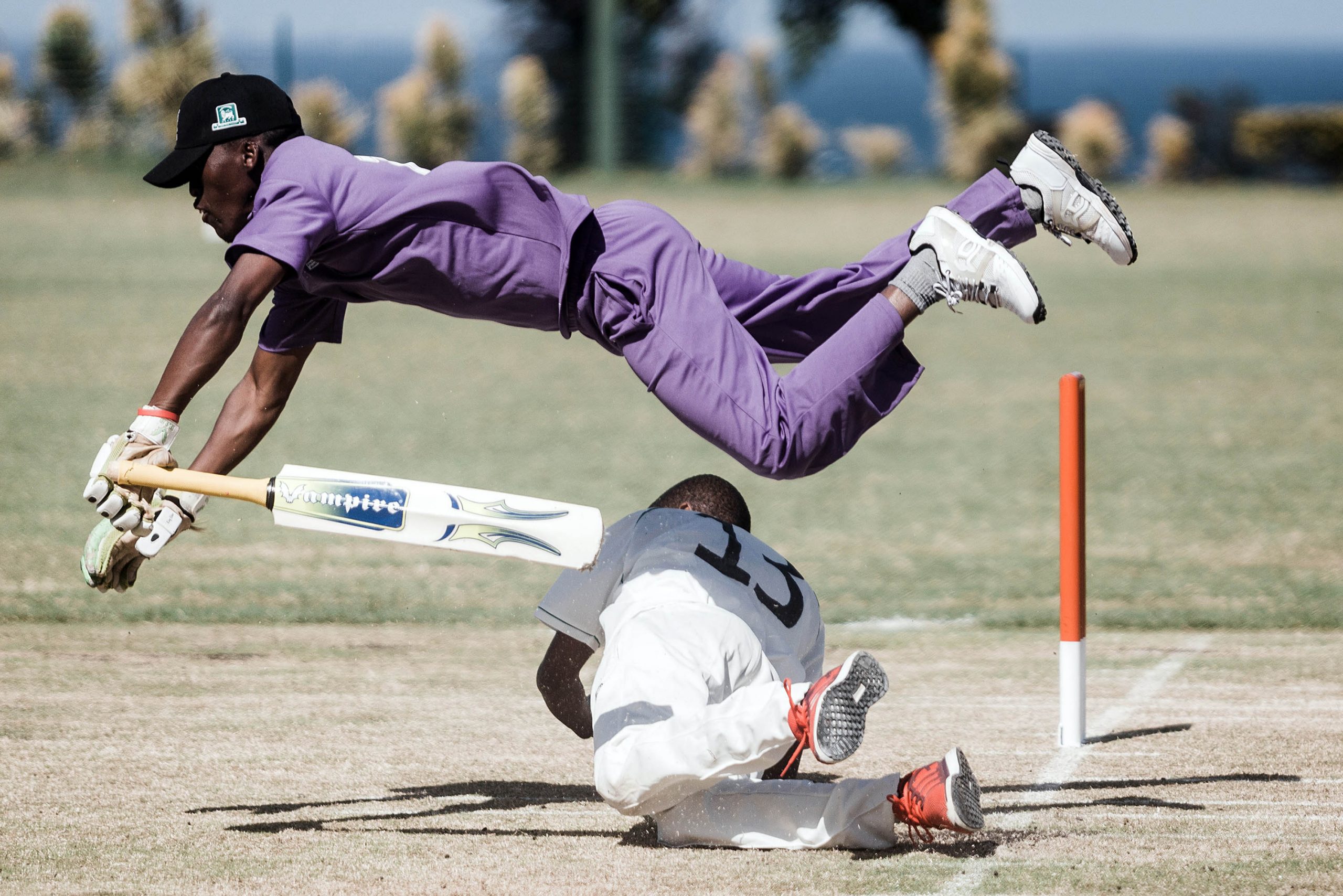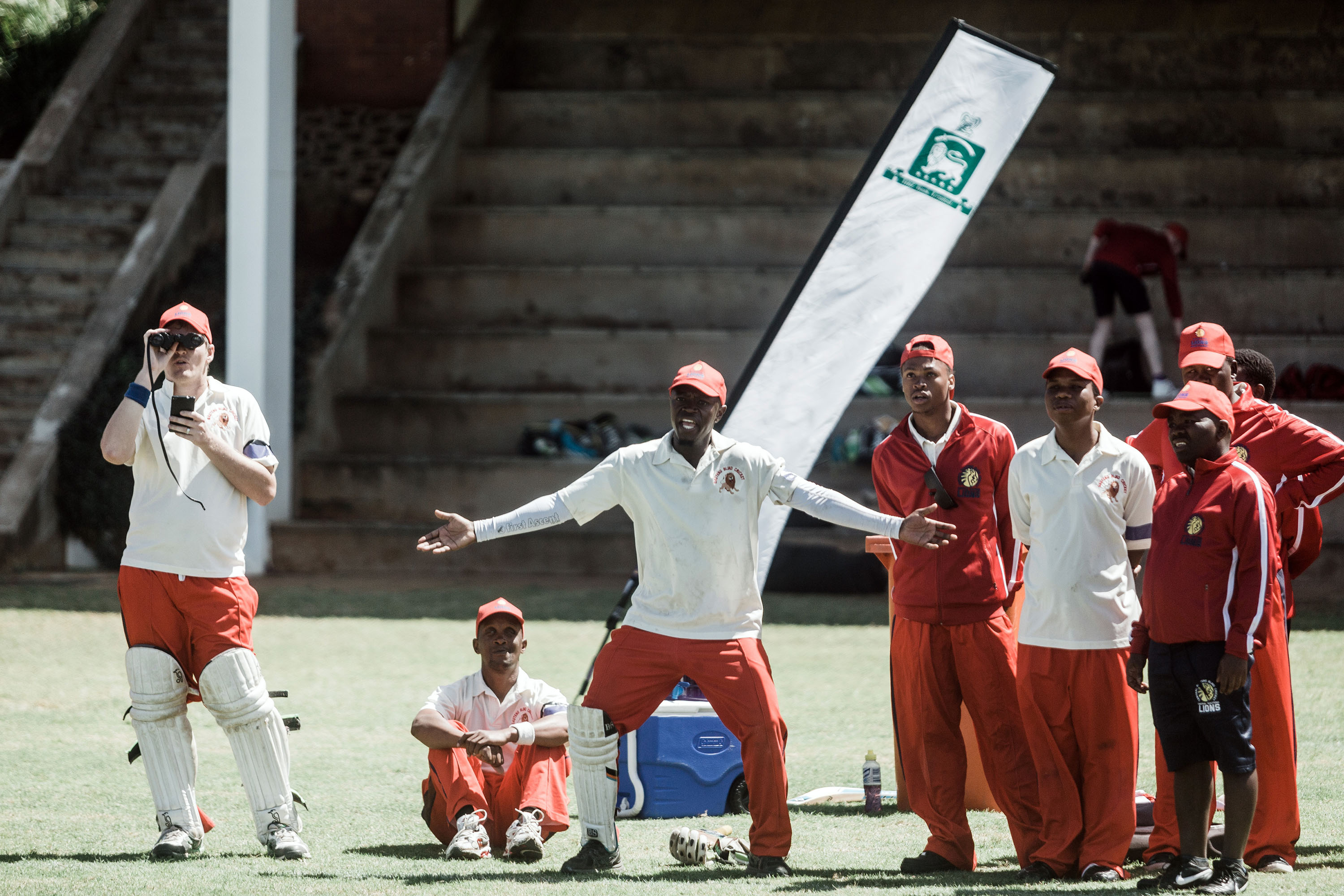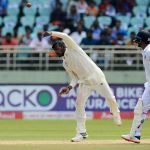SA has actually won a Cricket World Cup
South Africa won the Blind Cricket World Cup in 1998, but the sport has fallen on tough times despite being a lifeline for players such as KwaZulu-Natal Blind Cricket president Ndu Nyawose.
Author:
14 October 2019

To the uninitiated, blind cricket is a bizarre concept, a confusing and potentially calamitous contest of teams playing one of the most demanding sporting codes – with even more demands. Yet in late September, six provincial teams pitted their skills against each other in Durban at the Blind Cricket Inter-Provincial Tournament. And they weren’t quiet about it. There was aggression, rivalry and even some sledging.
“Uyazi, uyangijwayela lomuntu. Ungithuka ngesiPedi, ebe edlala neNatal (You know, this guy has some nerve. He is swearing at me in sePedi, when he is playing against Natal),” said one KwaZulu-Natal cricketer to his teammate at the break.
It is a feisty format of the sport, with no quarter given. These are people who have turned pain and loss into joy and camaraderie.

“Cricket has saved my life. I’m so happy when I’m out there, competing, lost in the moment. I asked myself what was the point of living when I found out that my eyesight had deteriorated to this point,” says Ndu Nyawose, 29, who lives in New Germany on the outskirts of Durban.
It is a largely forgotten fact, but South Africa does have a Cricket World Cup trophy. They won the first Blind Cricket World Cup in 1998, defeating Pakistan in the final. They lost the next final to the same opponents, but the two nations played in the first Test match for the blind in 2000, which Pakistan won by 94 runs.
Related article:
The sport has fallen on hard times in South Africa. A lack of financial support is central to this downturn, but there is no shortage of enthusiasm from those who partake. Nyawose plays for KwaZulu-Natal and is involved in the administration of the sport.
“I’m also the KZN Blind Cricket president,” he says. “I joined in February 2017, once I had been diagnosed with RB dystrophy [a rare corneal condition that is genetic].”
“I was acting president last year and I have been handed the job now. But I’m not really political,” he says, laughing. Nyawose is also the vice-president of Blind Cricket South Africa. He has just received a degree in Management and Economics and is starting a business with one of his teammates.
Dealing with sight loss
Nyawose speaks with disarming warmth and commands respect. As such, he is a good representative of the sport that has been a source of emancipation for him. “It is the one place where there are no obstacles, no traffic and no fear of being hurt by anything. It is a happy place and I am so grateful to play this game.”
It is a shameful reflection of our society that a cricket field is one of the safest havens for differently abled individuals. “We are the lucky ones, because we have this opportunity. There are so many others out there who are hidden away from the rest of the world,” says Nyawose.
Related article:
In African cultures especially, a condition such as blindness is seen as a stain on the rest of the family, a burden they have to bear. Blind family members are often kept from public view, from life itself.
“We are the lucky ones,” says Nyawose. “I had to be verified by an ophthalmologist and then I was introduced to the deaf and blind society.” The KwaZulu-Natal Blind and Deaf Society “provides services mostly to African people, generally poor, unemployed and living in rural areas”.
The people at the society saved his life. Gave him life, even.
“Of course, when you are told that you are blind, you feel a lot of things. Anger. Hurt. Frustration. Relief.” Nyawose was relieved because the decade leading up to his eventual diagnosis had been hugely frustrating, as he increasingly struggled with tasks that society takes for granted.
“It got worse and worse as I grew up. I remember at university, when I was struggling in exams even though I knew the work. I was struggling to finish in time and I couldn’t keep my work within the lines. No one could explain it,” he says.

Even walking around was a challenge. He would bump into things and into people, and had no ready answer when his friends asked him what was wrong. Though the diagnosis and the knowledge that his condition is irreversible was a hammer blow, it did finally explain why he had struggled for so long.
“I finally understood, and then had to adapt. Going to the Blind and Deaf Society was massive, because I met some incredible people. And I also heard some amazing stories that gave me hope,” he says.
‘A whole new world’
Blindness can strike at any time and to varying degrees. As Nyawose well knows, sometimes it is hereditary. But other times it can be a freak occurrence.
“I was told of a story about someone who went to sleep with a headache and then woke up blind the next day. Some people were in accidents, while others just have a steady deterioration over time,” he says.
It is a lot to bear, but being around people like him – strong people at that – galvanised Nyawose to take charge of his life.

“There are so many inspirations out there. People who finished their degrees and others working for big companies as IT specialists. Can you imagine?” he says enthusiastically.
But some of his greatest days are still spent on a cricket field. Having always been a fan of the game, he says it was tricky to adjust initially. “It helped that I used to play when I had my sight. But it’s also just a whole new world.”
The KwaZulu-Natal team often practises against fully sighted clubs and teams to prepare for tournaments. “We prefer it that way, because it helps us to improve our game. And it is still very tough for the guys who can see, because the game itself is tricky.”
How blind cricket works
Blind cricket relies heavily on communication. The ball rattles, which is important in a sporting code that caters for up to 25% vision. Players who have between 10% and 25% vision are B3 or partially sighted players. They play in key positions, directing those with less vision, and wear blue arm bands on the field to distinguish them from the rest of the team.
Players categorised as B2 have up to 10% vision. They are classified as partially blind and wear red armbands.
The third category in blind cricket is B1 players, who wear white armbands. Teams are required to field a minimum of three such players, who are completely blind and rely on their hearing to play. They listen for the rattle of the ball and require constant communication from their teammates. To see a B1 player batting is remarkable, and a reminder of the inconceivable depths of human ability.

“There are players out there doing incredible things,” says Nyawose.
They pour scorn on the adage that you can’t hit what you can’t see. “Their instincts, their shot-making skills and just their enthusiasm is amazing. Guys are hitting sixes from balls they can’t fully see, which are rolling on the floor. It’s incredible.”
The ball they use is softer than the traditional cricket ball, it’s almost plastic like and makes a rattling sound.
Funding challenge
The biggest challenge facing blind cricket is the lack of support from traditional sports backers. Members of the teams who travelled to Durban for the inter-provincial Twenty20 tournament had to partly fund the trip themselves.
“We were very grateful for the kit that we were sponsored for the tournament, as well as all the corporate help we received. Every bit helps and we just want to try and make this an easier road for those who want to join,” says Nyawose, wearing his presidential hat.
The players are cricketers in every sense of the word. And the team members are vocal, too.

Northerns celebrated their win over KwaZulu-Natal with a sePedi song and dance routine that rubbed salt into local wounds, while Western Province made sure that their Cape derby victory over Boland was ushered in with relentless chirping.
A classy Western Province team won the tournament, which ended with the announcement of the South African training squad. New Zealand visits South Africa for a series in February 2020 and it’s doubtful there’ll be much silence in that engagement either.
South African blind cricket training squad:
B1: Sergil January, Doctor Malinga, Sphelele Khalala, Cyril Mdlalose, Lekhatla Likhokha, Denzwil Maans and Johan Schroeder
B2: Ferdie Boer, Isack Bidla, Buhle Bidla, Bruce Mvundla, Joshua Douman and Reme Kampher
B3: Dominic Adriaans, Donovan van Noordwyk, Sean Schwan, Asher Hattingh, Sheppard Mangxaba, Michael Ledbitter, Senzo Luthuli and David Laundry



